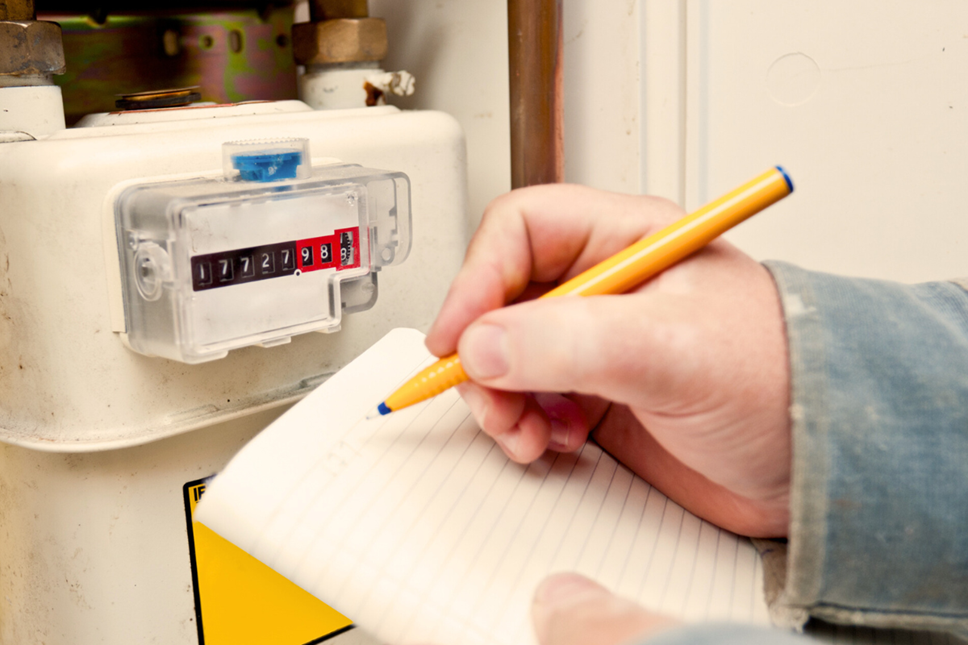
Don’t forget to submit your energy meter reading this weekend
Go.Compare is urging bill payers to take a meter reading on the 30th September, before the Energy Price Cap drops on October 1st
This weekend, the current Ofgem Price Cap will fall by £151, from £2,074 to £1,923 for the typical household. Go.Compare Energy is advising all bill payers to take and submit a meter reading before October 1st.
Gareth Kloet, energy spokesperson for Go.Compare energy, says:
“This latest drop in the Ofgem Price Cap will mean that the typical household energy bill will fall below £2,000 for the first time since April 2022. While this is good news, energy bills in the UK are still eye-wateringly high and as we head into the colder months, taking a meter reading is one way that could help curb any unnecessary costs.
“By submitting a meter reading on September 30th, before the price drop comes into force, it will mean that your energy company cannot charge you at the higher rate for any units that have been used after that date. As well as taking a meter reading when the Price Cap changes, it’s worth providing your energy company with an up to date reading on a regular basis so they can work out your bills accurately, otherwise they will estimate your usage which means you could be paying more than you need to.
Gareth continues: “While it’s good to see a further drop in the Price Cap this October, the average bill payer is still paying more for their energy than before the current crisis. And if you add to this that we are now heading into the winter months, where we traditionally use more energy, it’s worth thinking about ways to save on your bills now, and submitting a meter reading is just one of those ways.
“It may also be worth considering the tariff that you pay as there has been a slow but steady return to the switching market. A number of fixed rate tariffs have become available, which may be an option for those customers who want to protect themselves from the unpredictability of the energy market. But before you switch, there are lots of to consider before you opt for an energy tariff and it’s important to think about what’s right for you and your circumstances. A comparison site will help you weigh up these choices and provide a simple way to see what’s available in the market.
“As well as shopping around, there are other things you can do to prepare yourself financially, taking a meter reading on September 30th being one, but also, trying to reduce your energy consumption will help minimise costs in the short and longer term, and will ultimately pay dividends. While we will naturally use more energy in the winter months, there are things you can do around the home to save energy, including making sure you’re not leaving devices in standby mode, buying energy efficient appliances, swapping baths for showers and trying not to turn the thermostat right up as soon as the temperature drops outside. Also, if you’re fortunate enough to have a balance in credit with your energy provider, try to keep it in the bank in preparation for the winter months.
“If you are struggling to make payments and are concerned about energy bills, always talk to your energy provider in the first instance, as they have a duty to help. Do not be tempted to skip payments or just not pay – get in touch with them and they will discuss a payment plan with you.”
Go.Compare has a list of practical things that you can do to save on your energy costs in the home which can be found here: https://www.gocompare.com/gas-and-electricity/guide/energy-saving-tips/.
Contact Information
Rubie Barker
Notes to editors
For further information please contact:
Lynsey Walden or Kath Chadwick at Go.compare on lynsey.walden@gocompare.com or kathryn.chadwick@gocompare.com.
Keep up-to-date with GoCompare on Twitter; @GoCompare
Notes to editors
About Go.Compare
Go.Compare is a comparison website that enables people to compare the costs and features of a wide variety of insurance policies, financial products and energy tariffs.
It does not charge people to use its services and does not accept advertising or sponsored listings, so all product comparisons are unbiased. Go.Compare makes its money through fees paid by the providers of products that appear on its various comparison services when a customer buys through the site.
When it launched in 2006, it was the first comparison site to focus on displaying policy details rather than just listing prices, with the aim of helping people to make better-informed decisions when buying their insurance. It is this approach to comparing products that secured the company an invitation to join the British Insurance Brokers’ Association (BIBA) in 2008, and it is still the only comparison site to be a member of this organisation.
Go.Compare has remained dedicated to helping people choose the most appropriate products rather than just the cheapest and works with Defaqto, the independent financial researcher, to integrate additional policy information into a number of its insurance comparison services. This allows people to compare up to an extra 30 features of cover.
Go.Compare is part of Future Plc and is authorised and regulated by the Financial Conduct Authority (FCA).
More information can be found here www.gocompare.com or here https://www.futureplc.com/brands/.
